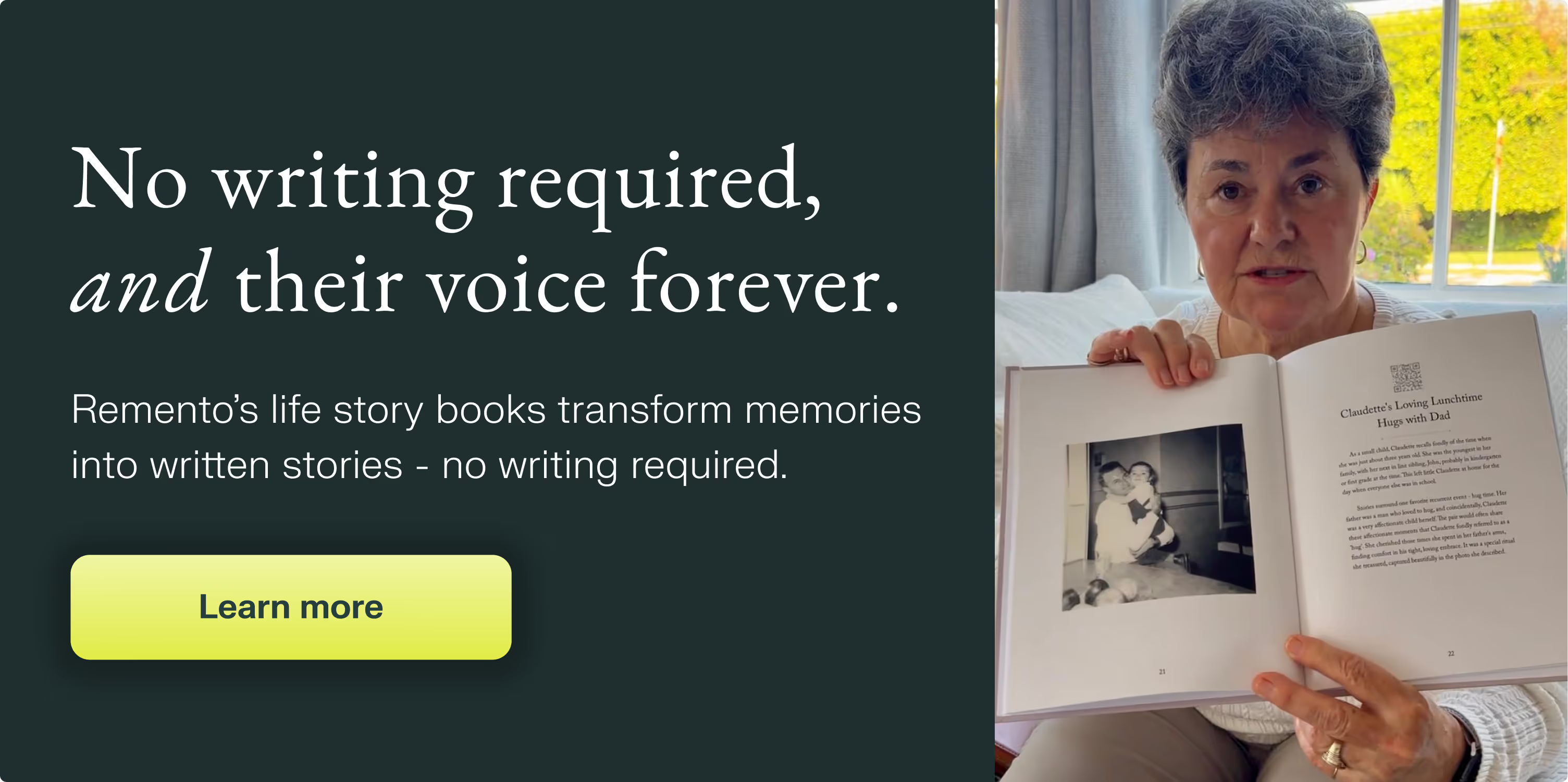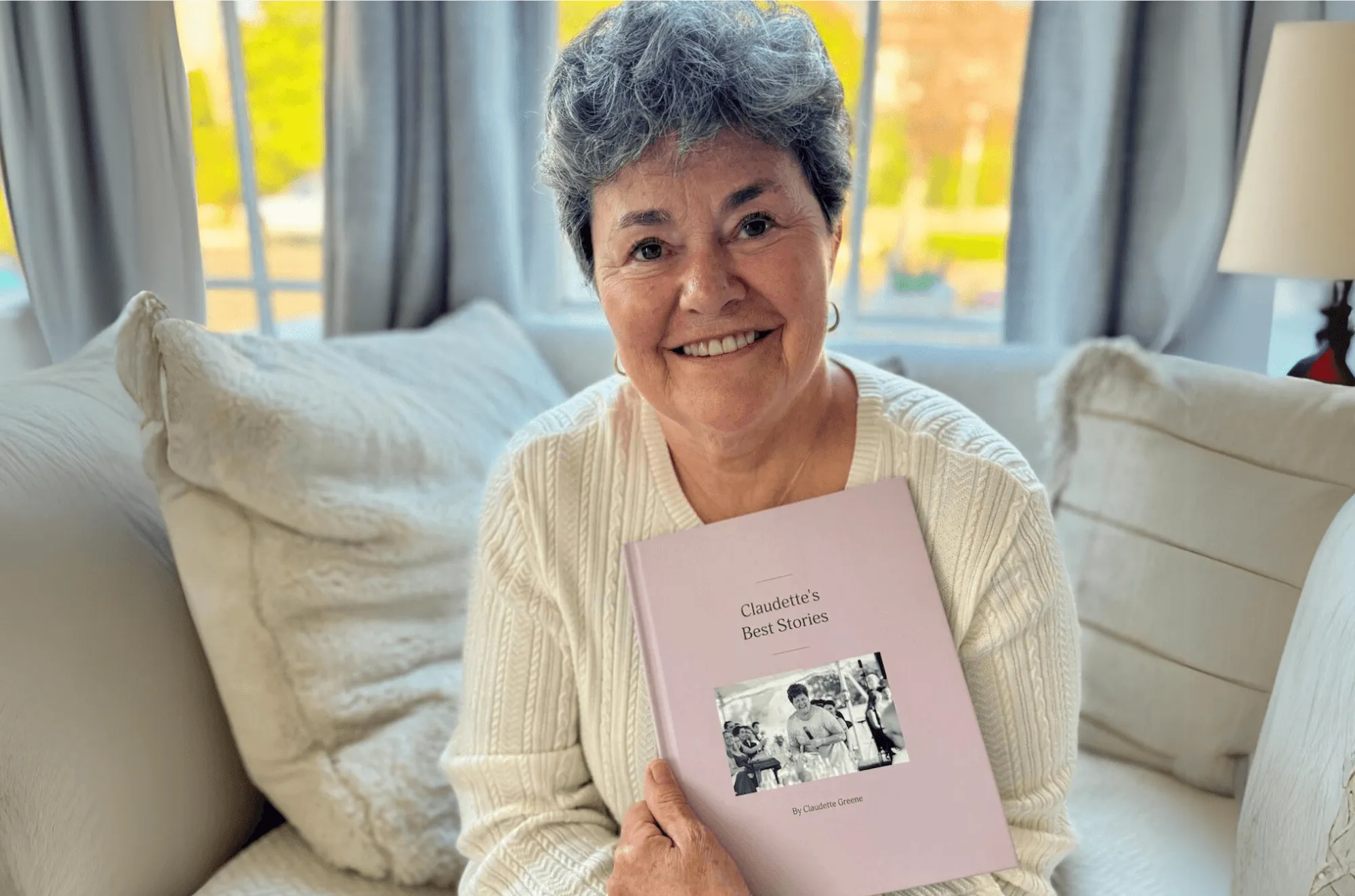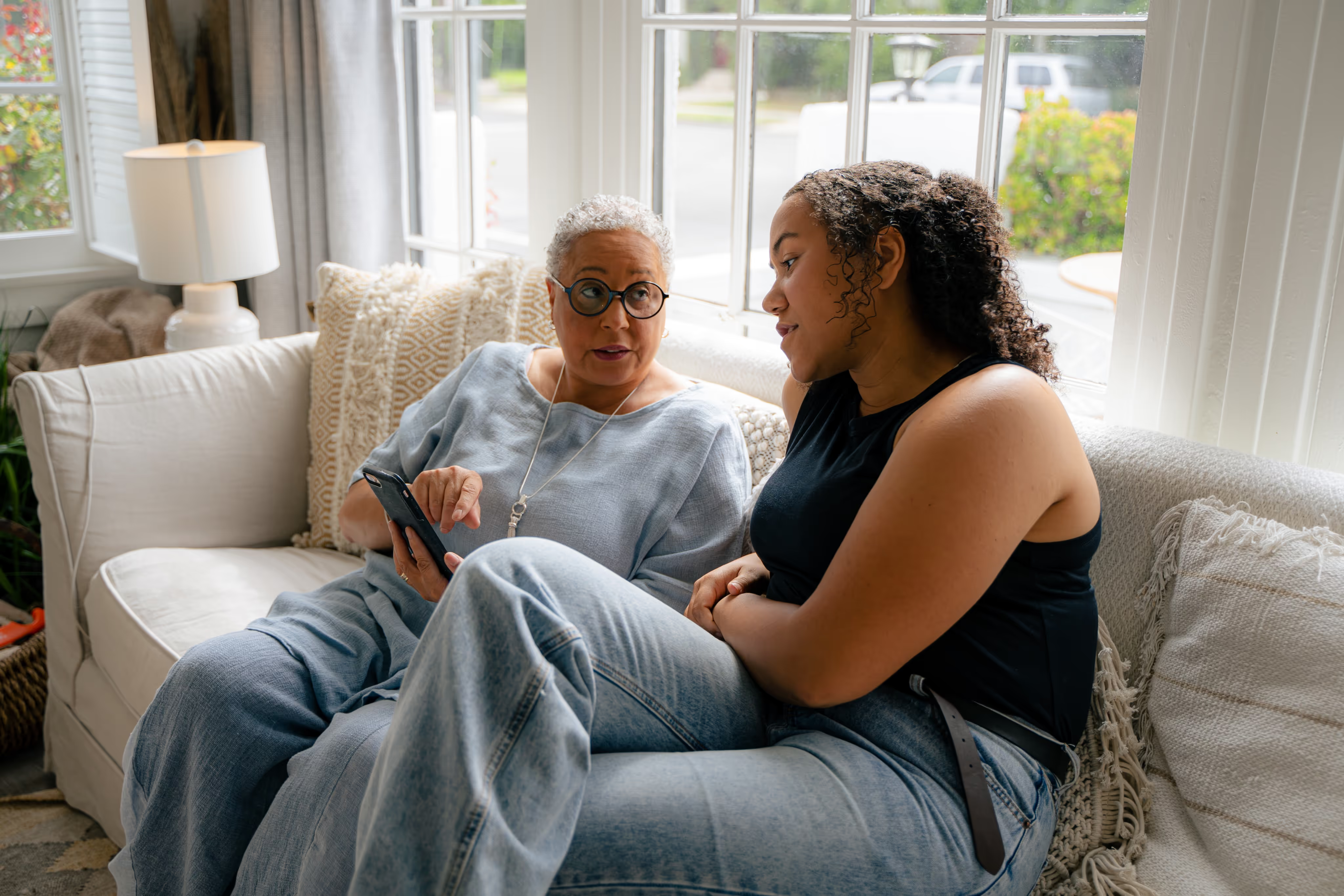Guaranteed to teach you things you never knew.
30 Questions to Learn About Your Parent or Grandparent’s Childhood
Explore 30 insightful questions that can help you connect with your parents and grandparents, uncovering the rich stories of their childhood and deepening your family bonds.
As we journey through life, we often forget that our parents and grandparents, pillars of wisdom and strength in our lives, were once young, vibrant children, with dreams, aspirations, fears and stories of their own. We sometimes overlook the fact that they too, like us, have a rich tapestry of childhood experiences that have shaped them into the individuals they are today.
In our increasingly fast-paced and digital-driven world, understanding our roots and the generations that came before us has never been more crucial. Not only does it give us a sense of belonging and identity, but it also allows us to connect with our elders on a deeper, more intimate level. It provides a unique opportunity to bridge the gap between generations, to learn from their experiences, and to preserve the memories and traditions that are often lost in the sands of time.
Whether you're seeking to understand them better, capture their life stories for future generations, or simply have more enriching conversations during family gatherings, this guide will serve as your roadmap. These 30 carefully curated questions are designed to stimulate engaging, meaningful and heartfelt conversations with your elders, and to help you delve into the depths of their childhood memories.
30 Questions to Learn About Your Parent or Grandparent’s Childhood
1. What is your earliest childhood memory?
Earliest childhood memories often form the foundation of a person's identity. They give an insight into their early life experiences, the environment they grew up in, and the people who played significant roles in their lives.
2. Did you have any pets growing up and how did they come into your life?
Pets can teach us responsibility, empathy, and unconditional love. Hearing about your grandparents' pets can not only bring up heartwarming stories but also provide a unique perspective on their childhood.
3. What first exposure to a breakthrough technology will you never forget?
The first exposure to a breakthrough technology can be a pivotal moment. It provides a snapshot of historical change and allows us to understand the progress they've witnessed first-hand.

4. What’s a memorable family trip from your childhood?
Family trips are often filled with memorable experiences and adventures. They can reveal the family dynamics, bonding experiences, and the places that made a lasting impression on them.
5. Did you have chores as a child? How were they enforced?
Childhood chores can significantly shape a person's work ethic and responsibility. By knowing about the chores they had and how they were enforced, you can gain insight into their upbringing and the values instilled in them.
6. What’s the best thing you ever purchased with your childhood allowance?
The best purchase made with a childhood allowance can reveal their childhood interests, priorities, and their understanding of money.
7. Did you have a nickname as a child and where did it come from?
A childhood nickname can tell a fun or interesting story about their younger years. It can provide insight into their personality and how they were perceived by their family and friends.
8. What’s the first major news story you can remember as a child?
The first major news story they remember can provide a historical context to their childhood. It can highlight the events that had a significant impact on their generation.
9. How did your family spend time together when they were young?
Knowing how their family spent time together can reveal family traditions, values, and dynamics. It can provide insight into their views on family unity and togetherness.
10. Did you have a secret hiding place as a child?
A secret hiding place during childhood often reflects a child's sense of adventure and creativity. Uncovering such a place could provide some interesting stories and a glimpse into their imagination.
11. Did you ever get lost as a child?
If they ever got lost as a child, it would not only provide an interesting story but also give a sense of their resilience and problem-solving skills at a young age.
12. How are you different from your siblings?
Understanding how they are different from their siblings can provide a perspective on the variety of personalities within their family. It can also shed light on how they perceive their individuality.
13. How would your parents have described you as a child?
Knowing how their parents would have described them can reveal how they believe they were perceived. This can influence their self-image and self-esteem.
14. How has your relationship with your siblings evolved?
Understanding the evolution of sibling relationships can shed light on changing familial dynamics. It can highlight the influences of life events and personal growth.
15. What was the most unique aspect of your upbringing?
Discussing the most unique aspect of their upbringing can give a deep insight into the distinctive elements of their childhood that impacted them the most.
16. What do you remember about your childhood bedroom?
Talking about their childhood bedroom can evoke memories about personal space, comfort, and possibly some unique stories.
17. What were your favorite hobbies as a child and how did you come to enjoy them?
Discussing favorite hobbies can reveal their early interests, how these interests shaped their personality, and the origin of these passions.
18. Describe a time in your childhood you got in trouble and what was the punishment?
A tale of getting in trouble in childhood can provide insight into the discipline methods of their time and the life lessons they learned.
19. What television programs did you watch as a child?
Knowing the television programs they watched can highlight the cultural influences that shaped their values and interests.
20. What smell would you most associate with your childhood and why?
Discussing smells associated with childhood can evoke vivid memories as smell is closely linked to memory and emotion.
21. What obstacle from your childhood most shaped the person you are today?
Discussing a significant obstacle from childhood can reveal the challenges they faced and how these experiences shaped their character.
22. How did your family’s economic circumstances influence your upbringing?
Understanding the economic circumstances of their family can provide insight into their upbringing, shaping of values, and lifestyle.
23. How did political conversations in your childhood home impact your perspective?
Discussing political conversations in their home can reveal the political climate of their childhood and its impact on their worldview.
24. How did you get to elementary school as a child?
Knowing how they got to elementary school can shed light on their daily routines, level of independence, and responsibilities.
25. What were your favorite subjects in elementary school?
Discussing favorite subjects in school can reveal their early academic interests, strengths, and potential career paths.
26. How would your elementary school classmates remember you?
Knowing how their classmates would remember them can provide a perspective on peer perception and social development.
27. Who was your childhood best friend and how did you become so close?
Discussing their childhood best friend can reveal the qualities they value in friendships and shared experiences that fostered close bonds.
28. What were your favorite toys as a child?
Talking about favorite toys can give a glimpse into their childhood interests, the popular culture of their time, and their creativity.
29. Who most inspired you as a child and why?
Discussing who inspired them most as a child can reveal the role models they looked up to, the qualities they admired, and how these influences shaped their aspirations and values.
30. What was your favorite outdoor activity as a child?
By asking this, one can gain insight into their family history, understanding how leisure activities have evolved over time, and perhaps even learn about their family's traditions and values during their early years.

Tips for asking these questions
Engaging in a conversation about their childhood with your grandparents or parents can be a deeply enriching and enlightening experience. It not only helps you understand them better but also provides you with a glimpse into a different era.
Before initiating the conversation, it's crucial to plan ahead. Choose a tranquil and comfortable setting for the discussion. This could be during a relaxed afternoon at home, over dinner, or during a family gathering. Having a calm atmosphere will make them more comfortable, allowing them to open up more readily about their past.
Begin the conversation on a casual note. Discuss current events or share something about your day. Slowly, steer the conversation towards their childhood. Be subtle and gentle in your approach. Ask them if they'd like to share some stories from their early years. This will show them that you're genuinely interested in their lives, making them more willing to share their experiences.
As they begin to share, show interest and engage with them. React to their stories, express surprise, ask for more details, and appreciate their experiences. This will make them feel valued and inspire them to share more.
Remember that everyone's comfort level is different when discussing their past. If they seem uncomfortable with a certain topic, steer the conversation in a different direction.
Finally, don't forget to express gratitude for their willingness to share their past with you. Show them that you appreciate their stories and the wisdom they've imparted. This will not only make them feel appreciated but also strengthen your bond with them.
So, while it's important to plan and prepare before initiating a conversation about their past, remember to be respectful, patient, and considerate throughout the discussion. After all, it's not just about gathering information, but also about understanding and connecting with your family on a deeper level.

Next Up: 10 Tips for Asking better Questions

Their stories, forever at your fingertips
Remento’s life story books turn a parent or grandparent’s memories of the past into a keepsake book for the future - no writing required.
Capture priceless family memories today
Join the thousands of families using Remento to preserve family history, all without writing a word.
.avif)
